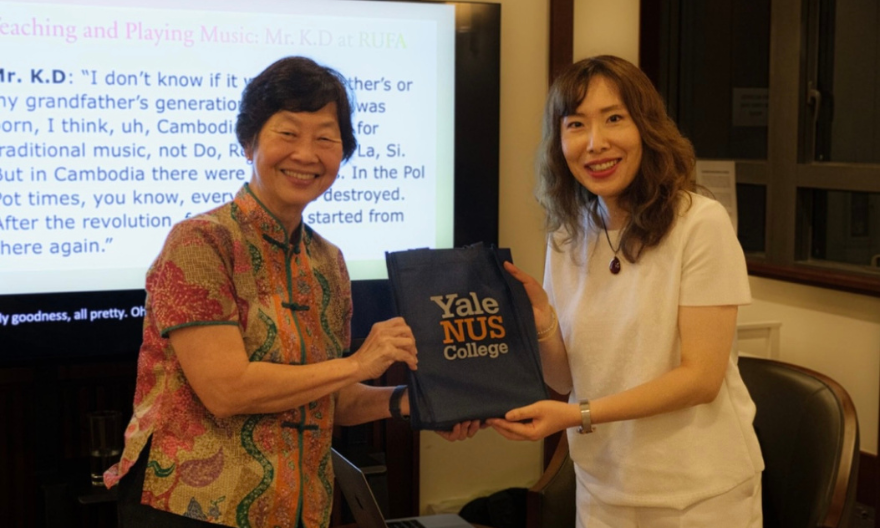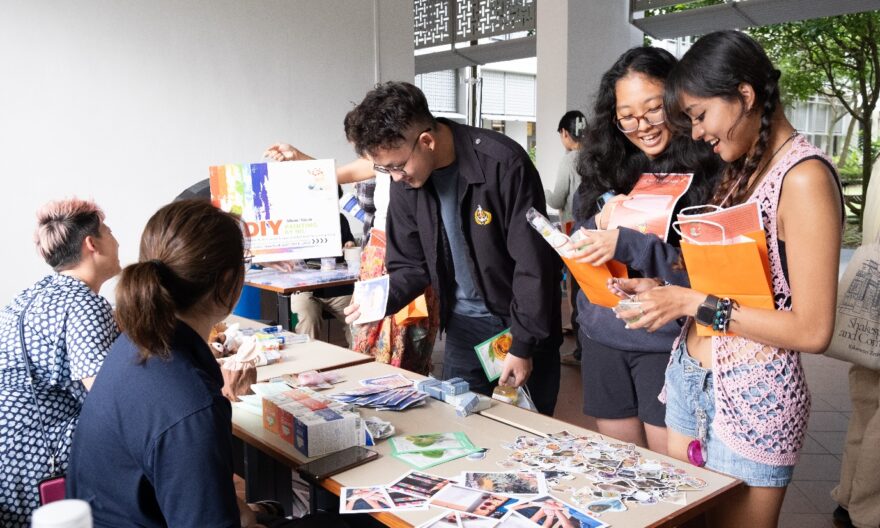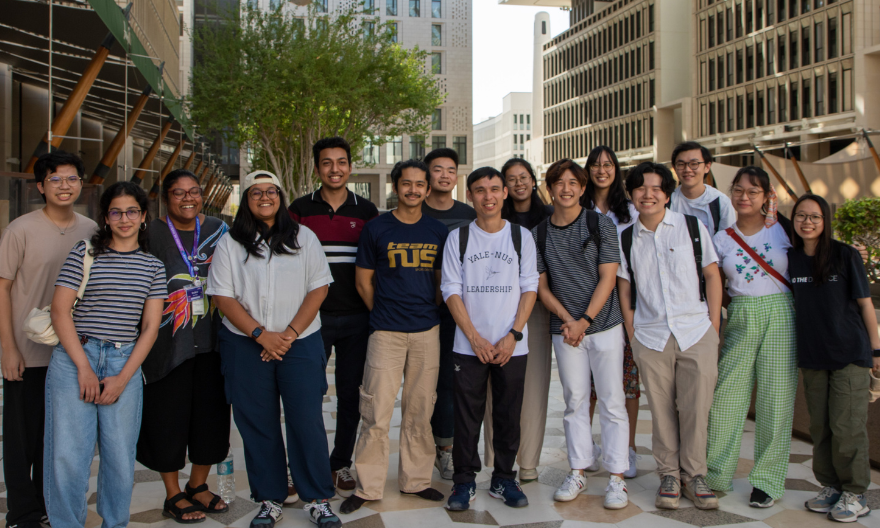Helping migrant workers learn English
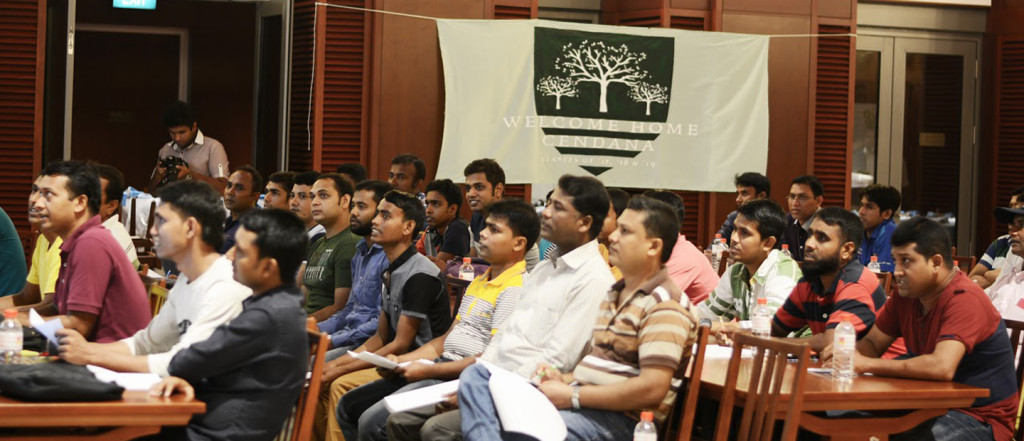
It’s late on a Sunday night, and most of the Yale-NUS College campus is quiet. In the Cendana Dining Hall, about forty construction workers listen attentively as a Bangladeshi man takes the microphone.
“Good evening, everyone! How are you guys?” he says in fluent English to a rapt audience.
The speaker, Mr Saiful, is a construction worker who has worked in Singapore for the last three years. He is also a graduate from the Social Development Initiative (SDI) Academy’s Everyday English programme, which he says changed his life by helping him master English.
“Actually, I’m really nervous, but I’d like to share about my experience in the past six months,” he continues. “Really, I never thought I could give a speech in public. This is a great moment in the history of my life!”
Founded in 2013 by Sazzad Hossain while he was still a student at Saint Andrew’s Junior College, SDI Academy began with the goal of creating affordable English classes taught in workers’ native language.
“It started off as a very small thing, more like volunteer work. It was first in a park with a small group of students, and after that, more and more students started coming to us,” shared Sazzad. “That’s when we realised that we had to get proper materials like worksheets and textbooks, and we decided to institutionalise our effort and expand our efforts.”
Sazzad, who is fluent in Bengali and English, took the time to write a textbook for the workers and started shaping the curriculum with the rest of the team.
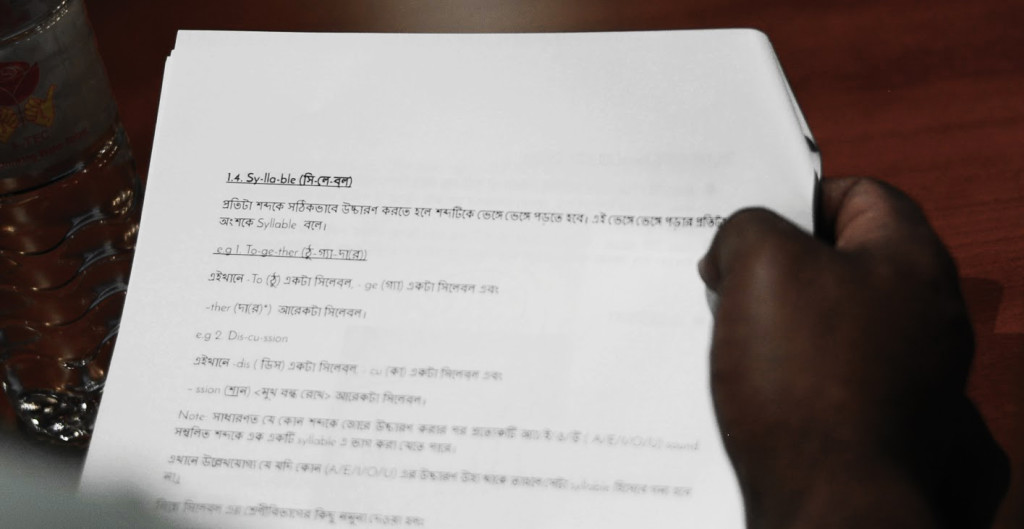
One of the worksheets provided by SDI Academy.
The core team at SDI includes two Yale-NUS students, Valerie Pang and Manas Punhani (Class of 2017), who look after Marketing & Public Relations, and Strategy & Development respectively.
For Manas, it was his Week 7 project, Migrant Nation, where he first encountered the struggles migrant workers face on a daily basis, and the kinds of contributions made by the ‘invisible workforce’ of Singapore. After his Week 7 project concluded, he was enthused to help migrant workers and readily joined Valerie in helping out at SDI Academy.
“We really want to work with the migrant workers and also with the employers on making work more productive and creating safer workplaces,” said Manas.
He added: “It really makes a different between being able to communicate with your boss versus not being able to understand what he’s saying, and we’re trying to help with that.”
To date, SDI Academy has helped more than 300 migrant workers from the construction, shipping and manufacturing industries become more proficient at communicating in English.
Mr Islam, a graduate of the Everyday English course, shared, “I work on a construction site, so if I don’t understand what my foreman is telling me, it’s going to be a big problem. For example, if he asks me to take a hammer and I take a cangkul (hoe), then it becomes difficult to do work!”
As a youth-run social enterprise, SDI Academy participated in the 2015 DBS-NUS Social Venture Challenge Asia (SVC Asia), and was one of two Singaporean businesses to win a grant under the Youth Social Entrepreneurship Programme (YSEP) for Start-Ups. The S$50,000 grant was given by the Singapore Centre for Social Enterprise (raiSE), and greatly helped them cover the costs of SDI activities such as printing of textbooks and worksheets.
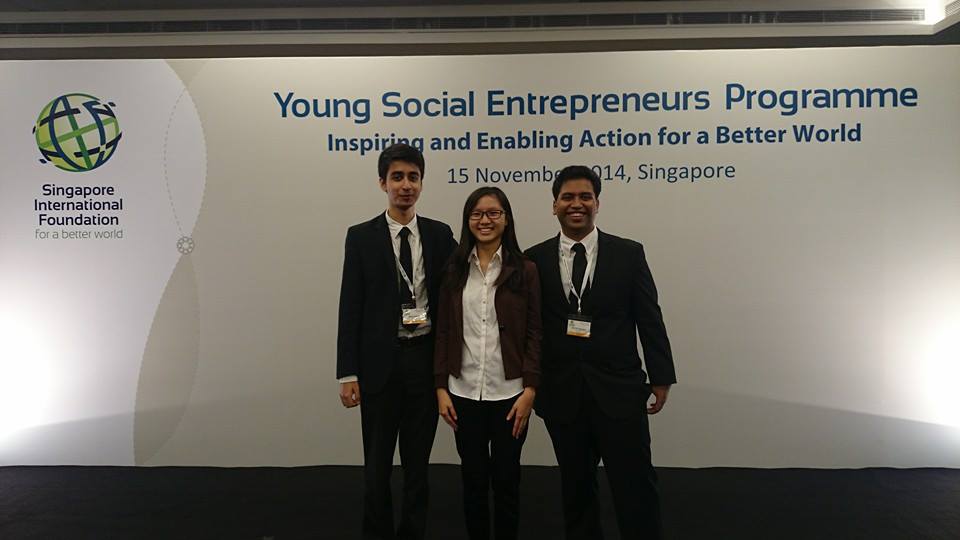
Manas (left) and Valerie (centre) are two Yale-NUS students who are a part of SDI Academy’s core team.
Another big help with keeping the costs low has been using Yale-NUS as a venue sponsor. For over a year since Valerie and Manas have gotten involved, SDI classes have been held at Yale-NUS College, first at Residential College 4, and now on the permanent campus.
“It definitely lowers our costs. It allows us to give a good rate to the workers!” he said. “The earlier location we had was near Little India, which was really expensive, but it was the only place we could think of because it has to be somewhere near an MRT or a bus stop that the workers can get to easily.”
Apart from English courses, they also created the Befrienders Programme, introduced at the tail-end of a course, where Singaporean volunteers help the workers practise the conversational English they’ve learnt, and introduce quintessentially Singaporean aspects of life such as ordering local kopi.
For Sazzad, who will soon enroll in Nanyang Technological University (NTU) after completing his national service, breaking down the language barrier is one close to his heart, as he moved to Singapore from Bangladesh at the age of 11 with his family.
“More than just being an English academy, we’re trying to create a more inclusive society,” he said. “Through our more social programmes, we try to create avenues for the workers to enjoy their time in Singapore and have fun, and at the same time, Singaporeans can meet and interact with workers and have fun together.”
For more about SDI Academy, visit www.sdi.academy

